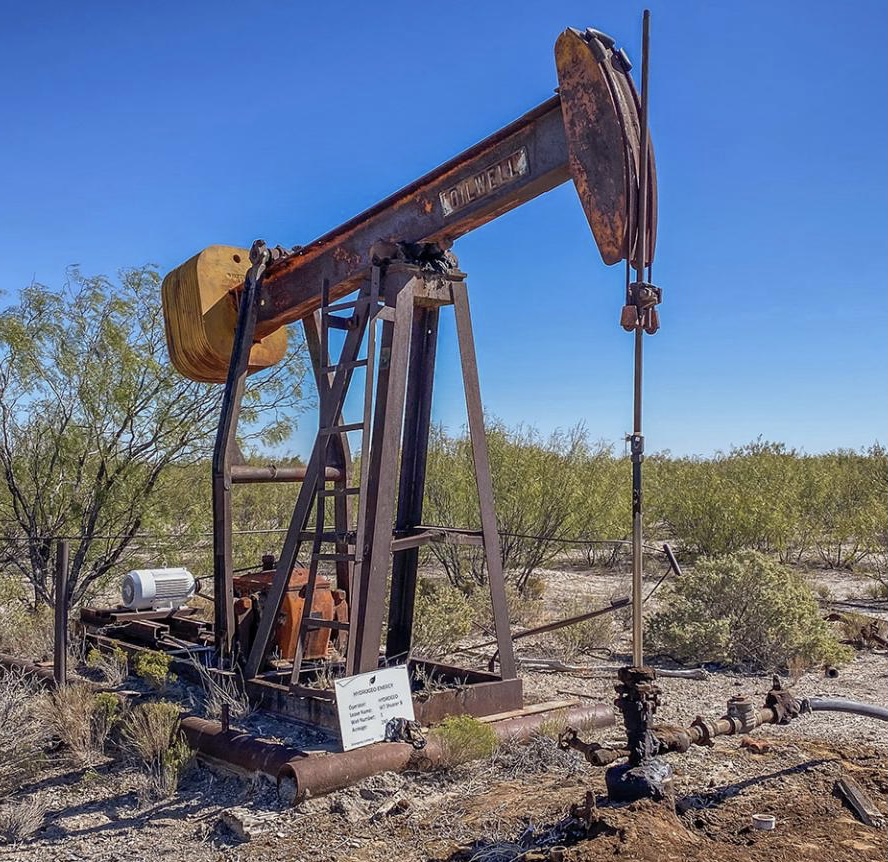In the vast landscape of Pecos County, Texas, an abandoned oil well, known as a “zombie well,” unexpectedly roared back to life in late July, releasing gas and toxic water despite being plugged just a year ago. This incident has cast a spotlight on the Texas Railroad Commission (RRC), the state agency responsible for regulating oil and gas operations, which is now under increased scrutiny for its oversight failures.
A Growing Crisis in West Texas
Hawk Dunlap, a seasoned oil well control specialist, uncovered the reactivated well on the Briggs Ranch, where he demonstrated the inadequacy of the plugging job by crumbling a chunk of the well’s brittle cement casing in his hand. Dunlap, known for his sharp criticism of the RRC, has spent the last two and a half years documenting numerous blowouts and leaks across West Texas, attributing them to substandard plugging efforts that were nevertheless approved by the RRC.
Dunlap, along with his partner, oil and gas lawyer Sarah Stogner, has identified over 100 leaking legacy or “orphan” wells, which, despite being listed as properly plugged in RRC records, have been spewing toxic substances. The resurgence of these wells, exacerbated by increased subsurface pressure from the fracking boom in the Permian Basin, has heightened concerns among landowners and environmental advocates.
Regulatory Failures and Environmental Risks
The RRC is facing mounting pressure to enhance its oversight as more abandoned wells begin to leak or gush uncontrollably, forming salt-laden lakes and causing sinkholes. These incidents have been linked to the billions of gallons of wastewater injected back into the ground as part of modern drilling practices. Experts like Dunlap suggest that this injected water creates additional pressure, leading to the failure of poorly plugged wells.
The U.S. Environmental Protection Agency (EPA) has been urged to investigate the RRC’s management of waste disposal wells following a complaint from the watchdog group Commission Shift. The complaint alleges that the RRC has mismanaged its oversight responsibilities, contributing to the growing number of well failures.
Despite these concerns, the RRC has downplayed the issue, with spokesperson Patty Ramon stating that there is “little evidence of a widespread occurrence of previously plugged wells leaking.” However, recent federal funding aimed at addressing the orphan well crisis comes with strings attached, requiring the RRC to measure methane and other gas emissions from wells before and after plugging.
The Road Ahead: Accountability and Reform
The crisis in Texas has spurred calls for significant reforms within the RRC. Dunlap, who is now running for one of the three RRC commissioner seats as a libertarian, hopes to drive these changes from within the agency. His platform includes improving the quality and speed of well plugging, holding oil companies accountable for their abandoned wells, and rebranding the Railroad Commission to better reflect its regulatory role in the oil industry.
Meanwhile, the environmental and safety risks continue to escalate. A recent study by Southern Methodist University linked a massive well blowout in Crane County, Texas, to wastewater injections occurring miles away. The RRC is currently investigating these connections but has yet to publish conclusive findings.
On the Briggs Ranch, the situation is dire. Less than a week after Dunlap’s visit, another well less than 1,000 feet from the ranch house experienced a catastrophic blowout, spilling toxic water near livestock pens. Despite multiple reports to the RRC, landowner Laura Briggs only received a response after the well’s condition worsened.
The ongoing challenges in West Texas underscore the urgent need for regulatory reform and more effective management of the state’s oil and gas legacy. As pressure mounts on the RRC, the question remains whether the agency can rise to the occasion and protect the land and people of Texas from the growing threat posed by these reactivated wells.
Source: Reuters



